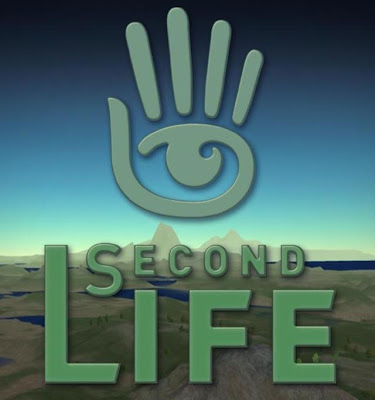 Never before has virtual reality been experienced more vividly. Human imagination, fantasies and desire for utopia, nearly, have been stretched to its maximum in an effort to capture a digital replica of mortal existence. Second Life is a creative innovation in this direction. It is a dynamic world like the real world, wherein an established presence has the ability to explore a realm of possibilities never considered in reality.
Never before has virtual reality been experienced more vividly. Human imagination, fantasies and desire for utopia, nearly, have been stretched to its maximum in an effort to capture a digital replica of mortal existence. Second Life is a creative innovation in this direction. It is a dynamic world like the real world, wherein an established presence has the ability to explore a realm of possibilities never considered in reality. 
After having signed up in Second Life and downloaded the necessary software, I was ready to venture into a whole new world. At some point of time, I knew I had to buy the Linden dollars, the planet's currency, to get more mileage out of the experience, but initially I was happy to explore the new place. The most refreshing thing, which is only a theoretical possibility now, was teleportation. I had the entire geographic expanse at my disposal to choose from,and get there in no time and with no money. So I skipped the orientation and reached an open fair on the diametrically opposite side of the map. There were people and lots of people. All had weird names and some very funky avatars. I, being a novice, felt that I too needed an image makeover. So I went on to change my avatar, a thing I will not be able to do in reality so quickly. Ready for the social embrace, I interacted with a few people. Some were the residents since quite some time and some very new to the world like me. It has a cool feature that one would desire to have. Before going and approaching an individual, one can research the person's profile and accordingly draft the conversation. After a bit of loitering around and getting a feel of the environment, I decided to get to some serious business.
I went through the orientation or the introductory workshop and got a better understanding of the new world. I planned to back the orientation with some 'real' experience. I signed up for a free workshop on Second Life control tutorial. It was an amazing experience where I learned how to create objects and basic building blocks for bigger structures. This is the first step towards establishing presence in Second Life. From here on I realized that with a creative appetite, one could do wonders. It is like having the power of the creator himself. You can build your own world, your own gadgets, empower them with all th desired features, use them sell them and leverage a plethora of business opportunity. One can build one's own social network with a unimaginable diversity to exploit. I am actually clueless with regards to the possibility, opportunity and the unfathomable scope of this digital mania. The more I talk about it the more am I going to sound shallow and illiterate as Second Life is evolving continually and rapidly, also at this very moment that I am writing.
I personally have not spent much time on Second Life but from what ever little I have done, I am totally in awe of this thing. Getting used to does take a bit of time and patience but it is worth the efforts. I believe enhancing ways to make the interface easier, making instructions more readily available will bring in more and more residents. The concept needs modification and adaptability to the origins of the growing user base. There are un-addressed issues like impersonation sabotage, virtual vandalism and so on. However, I can relate to SLosphere as a land of opportunity and a canvass of human creative exhibition.




